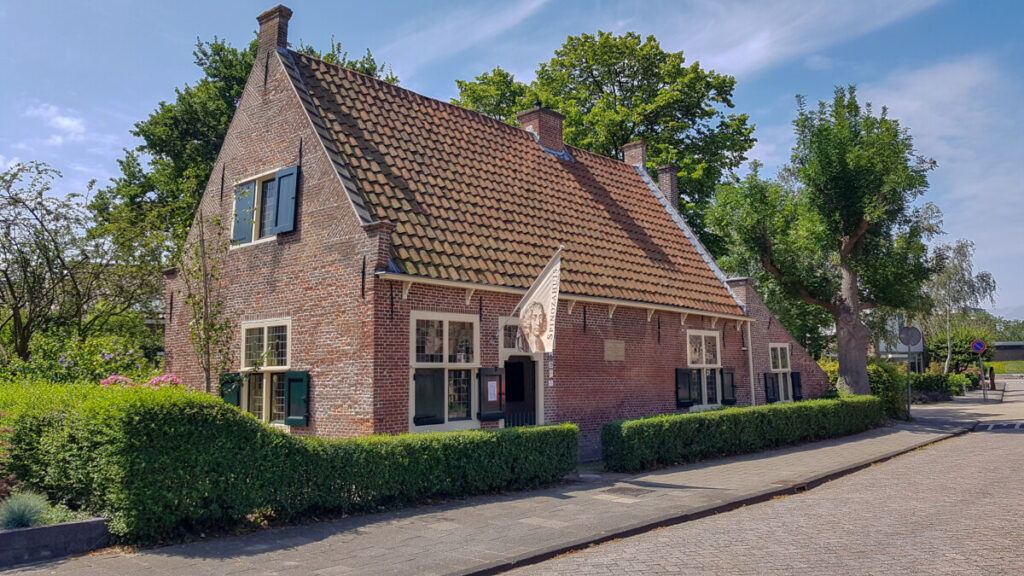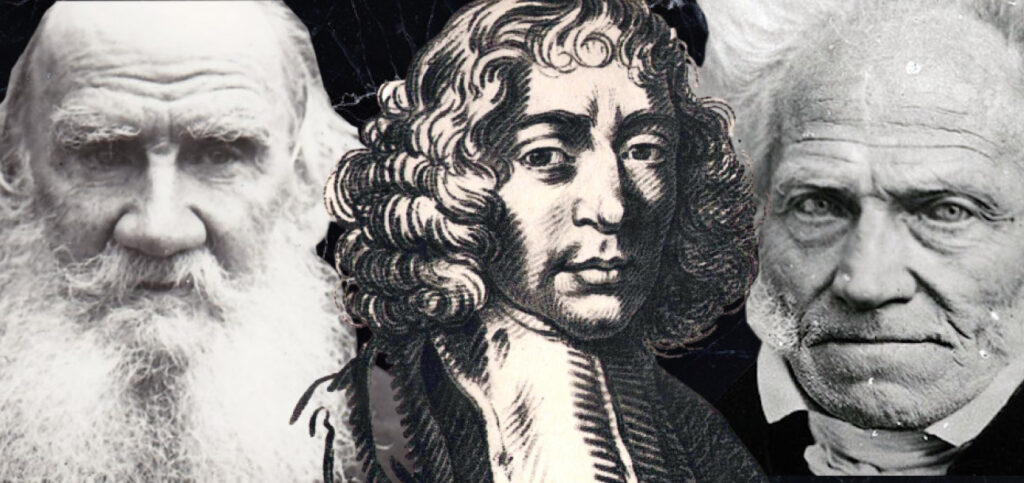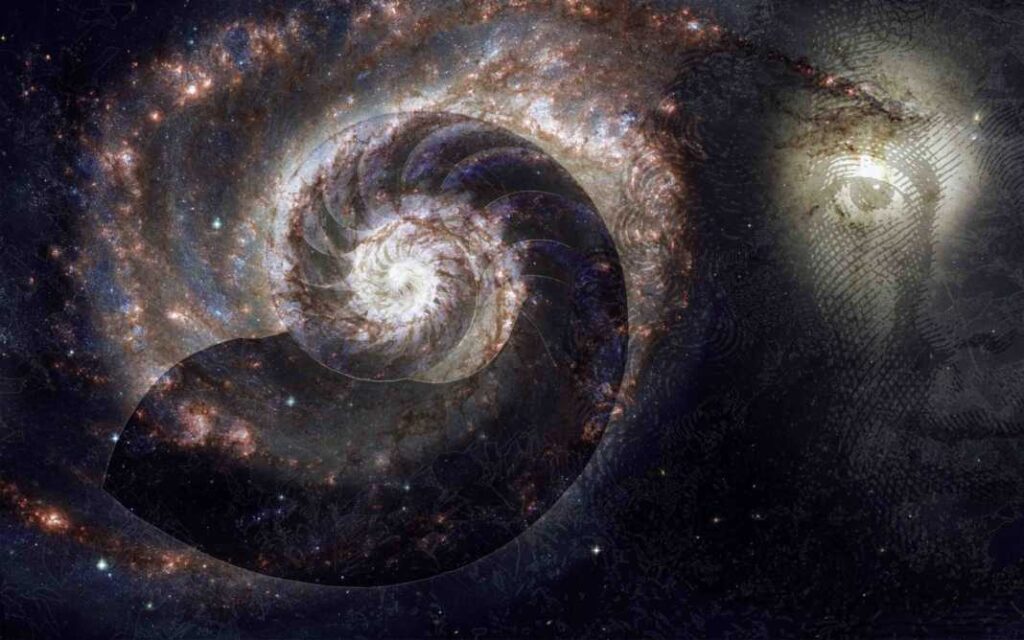This summer I had a very interesting encounter in a late-night printshop. I entered the shop ten minutes before closing time because I needed to print some important documents for our holiday the next morning. I got chatting with the girl behind the counter, just some general small talk. But that all changed when she realised I’m from the Netherlands.
She said ‘ooh! The Netherlands! I really want to visit the Netherlands!’
This is something you hear all the time when you say where you are from. It doesn’t really matter where you are from, people always seem to have a strong longing to see whatever shithole you are from.
So I was fully prepared for her to say something in the vein of: ‘Yes, yes, Amsterdam, smoking weed in the coffee shops haha really nice, and the canals, wow, so beautiful, so amazing I would love to see it, so cool.’
But instead, she said: ‘Yes, I would love to visit the Spinoza-museum in Rijnsburg.’
Now, that caught me off-guard.
The Spinoza museum in Rijnsburg… I have heard of its existence, but I have never heard of anyone that actually went there. It’s a tiny, very niche museum. So it’s very interesting that she even knew about it, let alone that it was her #1 reason to visit the Netherlands.
She then started to explain to me that she had been tremendously inspired by this book about Spinoza that she had read. The Spinoza Problem by the American-Jewish writer/psychiatrist Irvin D. Yalom. She talked about this book with such a passion that I could not do anything else than download the book immediately when I got home. And so I did. I finished reading the book very quickly and in this article, I would like to discuss how it impacted me personally. Because I bet you it did.

My personal history with Spinoza
Spinoza was a 17th-century Dutch (Jewish/Portugues) philosopher who destroyed the idea of a transcendental god and consequentially got banned by both Christians and Jews. He was a scholar and an intellectual, proficient in Hebrew, Greek, and Latin. He studied the holy scriptures and other people’s interpretations of the Torah and the Bible. How his approach different from others is that he treated the Bible as a historical document instead of a holy book. He tried to place the book in the historical context it was written and he tried to eliminate the mystery of the words. The ideas that he came up with after following this method have changed the Western way of thinking forever.
It was not the first time I read a book about Spinoza and it was certainly not the first time I got introduced to him as well. But despite being aware of him and his ideas for many years (and even reading a biography about him last year), his ideas never really resonated with me.
I’m not sure why. Probably because it all seemed pretty straightforward. His ideas are so fundamental to the Western perspective that I didn’t really realise how revolutionary they were when they were first published. I needed the book ‘The Spinoza Problem’ by Irvin D. Yalom to understand Spinoza’s ideas in the context where they had arisen.
Yalom does a wonderful job at bringing Spinoza and his ideas to life in this historical fiction. But apart from presenting the ideas in an attractive manner, he also manages to slip in a few critical questions. Now I’ve personally not read any of Spinoza’s own works, but I’m very curious to find out what he has to say about these topics. In the paragraphs underneath I will discuss a few interesting topics that get highlighted in the book.

Freedom versus community
One of the most interesting topics addressed in the book is the dichotomy between community and freedom. In the book (and supposedly in real life as well), Spinoza chooses a life of solitude (and freedom) instead of communal life (and the chains that come with it).
In the book, Spinoza is exiled from the Jewish community in Amsterdam (just like in real life) after his revolutionary ideas come to light. Subsequently, he moves to the nearby town of Rijnsburg to continue his studies. No Jew is ever to have contact with him again by any means. However, there is one Jew that is very interested in Spinoza’s ideas and checks in on him every now and then. His name is Franco (fictional character) and he follows many of Spinoza’s critiques of the Jewish religion/tradition/community. But contrary to Spinoza, Franco decides to remain an active member of the Jewish community. He even intensifies his Talmud studies and becomes a rabbi.
The biggest difference between the two characters is that Spinoza completely denounces all traditions and rituals by calling them human inventions. They are tricks, set in place by the power-hungry elite to keep themselves in power. To keep the community intact, obedient and cohesive. It has nothing to do with God or anything divine. This is why Spinoza would never be able to take part in such a Spiel. He sees through it and calls the hypocrisy of it.
But on the other hand, there is Franco… He also realises that religious rituals are not divine, but merely human constructs. But despite this realisation, he remains part of the Jewish community. He does so, because he sees value in the community. He believes that rituals and traditions are inherent in community and culture and not necessarily bad.
Here is Franco explaining why he thinks religious traditions and rituals have value:
“When I read and chant the Hebrew melodies together with the entire congregation, I feel safe; I feel at home, almost merged with my people. Knowing that everyone else there shares the same despair and the same yearning fills me with love for every person.
(…)
“When I lead prayers, I connect to my past, to my father and grandfather, I think of my ancestors who, for two thousand years, have been saying the same lines, chanting the same prayers, singing the same melodies. At those moments, I lose my self-importance, my separateness, and become a part, a very small part, of an unbroken stream of community.“
Franco starts talking about finding community, finding connection. Becoming part of something bigger. A long line of history, connected through traditions and stories.
Where it gets interesting is when Spinoza starts sharing his views on this freedom vs community. Instead of connection, Spinoza proposes a mode in which we would lose our separateness. Losing separateness and finding connection sound pretty much like the same thing. However, Spinoza does a great job explaining what the real difference is between the two terms.
“To view the world sub species aeternitatis I must cast off my own identity—that is, my attachment to myself—and view everything from the absolute adequate and true perspective. When I can do that, I cease to experience boundaries between myself and others. Once this happens, a great calmness floods in, and no event concerning me, even my death, makes any difference. And when others achieve this perspective, we will befriend one another, want for others what we want for ourselves, and act with high-mindedness. This blessed and joyful experience is thus a consequence of a loss of separation rather than a connection. So you see there is a difference—the difference between men huddling together for warmth and safety versus men who together share an enlightened joyous view of Nature or God.”
This is something I’ve come across before in philosophy. And in my earlier readings, I found a similar vision of ‘losing separateness or ‘realising the unity of the universe’ in the works of Tolstoy and Schopenhauer. This a great finding, and it strengthens my belief in the unity of the universe. And the similarities don’t stop there. Where Schopenhauer claims that all elements in the universe are driven by their Will to life, Spinoza claims something very similar. Except he doesn’t call it the Will, but he calls it ‘conatus’. Just read this section below.
“When I think of being, a fundamental truth seems self-evident: I, like every living thing, strive to persevere in my own being. I would say that this conatus, the desire to continue to flourish, powers all of a person’s endeavors.”
If all these great thinkers were thinking like this, then there must be some sort of truth to the matter, right?

Anyway, all of this begs the question, what is better? The shackles of community or the freedom of solitude? Are you a higher being by choosing to renounce community and are you closer to an animal when you chose to live in a community? Or is there a next step in this evolution of thinking? Like Tolstoy proposes when he seems to suggest that after we’ve seen the unity of the universe, we should accept that the true way of living and the true religion can be found in the simple peasant’s life: taking care of each other and helping each other continue to live. Abiding by the laws of Nature and following a simple, honest life.
Or is Spinoza simply proposing a way of living that works for him and helps him in his drive for knowledge? His drive to understand the world around him. Living in solitude, free from the burdens of community, can help greatly when you’d like to focus on one task and one task only. And when you approach the question from that perspective, you might be inclined to think that Spinoza was just someone on the spectrum that managed to find the perfect excuse to fuck off from all social obligations. And you have to respect the best man for that effort.
Anyway, it seems that Spinoza was not really concerned with telling people how they ought to live. He was just trying to understand the universe. Or at least, that’s what I gathered from this book. I’ll be interested to read Spinoza’s own works to find out if that’s true.
God = Nature = Eternal
In this section, I’ll try to describe how Spinoza came to the conclusion that God equals Nature and vice-versa. There are many scholars that believe Spinoza didn’t really believe this and he only believed in the laws of Nature. These scholars believe that Spinoza just told everyone that the laws of Nature equal God because he suspected he would be killed otherwise. Spinoza thought the world was not ready for a universe without God. But there are also many other scholars that dispute that idea. But despite that disclaimer, I still think it’s interesting to discuss this topic. In very short, this is what Spinoza claims:
- Bible says: God is perfect, complete, and possesses absolute wisdom.
- Bible says: God is everything and from Himself created the world and everything in it.
- Nature, which is infinite and eternal and encompasses all substance in the universe, acts according to orderly laws that cannot be superseded by supernatural means.
- Since God and Nature have identical properties, they must be the same.

To understand this list above, we have to understand what Spinoza meant by ‘nature’. See his explanation below.
“I don’t mean the trees or forests or grass or ocean or anything that is not manmade. I mean everything that exists: the absolute necessary, perfect unity. By ‘Nature’ I refer to that which is infinite, unified, perfect, rational, and logical. It is the immanent cause of all things. And everything that exists, without exception, works according to the laws of Nature. So when I talk about love of Nature, I don’t mean the love you have for your wife or child. I’m talking about a different kind of love, an intellectual love. In Latin I refer to it as Amor dei intellectualis. The love of the fullest possible understanding of Nature, or God. The apprehension of the place of each finite thing in its relationship to finite causes. It is the understanding, in so far as it is possible, of the universal laws of Nature.”
This is interesting because by approaching the love for God/Nature as an intellectual endeavor he also is saying that this love can only be one-sided. You cannot expect love back from Nature. It is similar to saying you love football. Okay, cool. You love football. You love watching it, studying it, practicing it. But will football love you back? Probably not. It’s just a sport. That’s how we should approach Nature/God.
“We can expect nothing back. We derive a joyous awe from a glimpse, a privileged understanding of the vast, infinitely complex scheme of Nature.”
All of these ideas emphasised Spinoza’s adherence to immanence, as opposed to any form of a transcendental God. All the ideas that followed from that principle were detrimental to most of the religious thoughts. For example, from there it also follows that the afterlife cannot exist. And since most of the world religions base all of their ethics and rituals on the idea of the afterlife, you can imagine why the religious leaders were not particularly happy with Spinoza and his ideas. And you can only imagine the massive impact that Spinoza has had on the Western way of thinking.
And so Spinoza has finally gotten to me. I have never been a religious fanatic in my life, but opposed to everyone around me growing up, I refused to become an atheist. Mostly for cultural reasons. I loved the connection to my culture and my family. It makes you feel like you are in on something mysterious and special. But the way Spinoza explains it, makes me doubt the purposes of those traditions. It’s not like that has never occurred to me before, but when a philosophical mad lad like Spinoza comes to deliver this message to you in person, it hits differently. And because I’m now becoming a fan of Spinoza, I value his opinion more than before.
It’s quite amazing how Spinoza managed to do all of that. And how he did it in times when there was little support for these ideas. He truly did it to satisfy his own personal hunger for knowledge and understanding. And that is something I hugely admire. I cannot wait to delve into his works deeper, to create a deeper understanding of the best man’s thoughts.